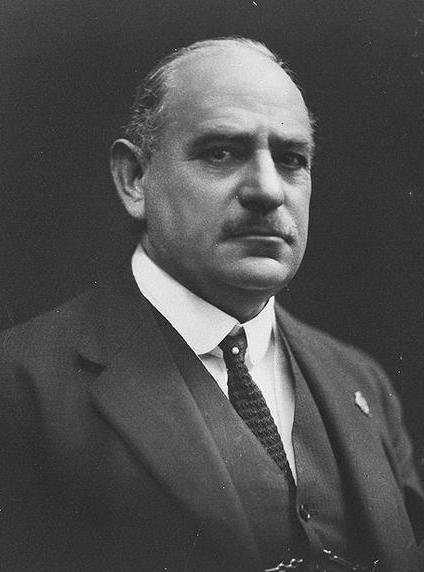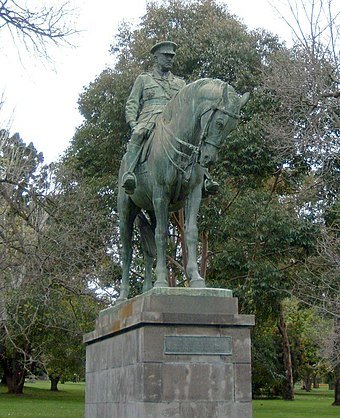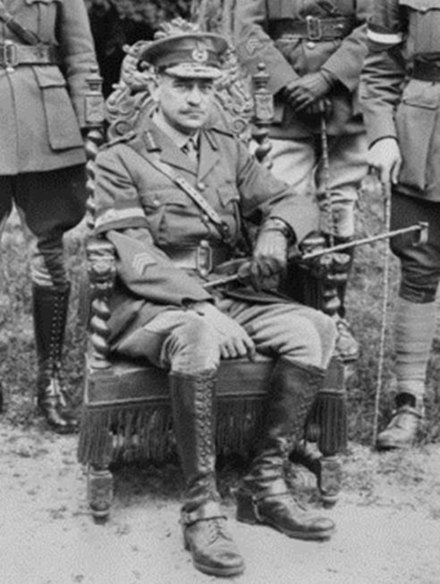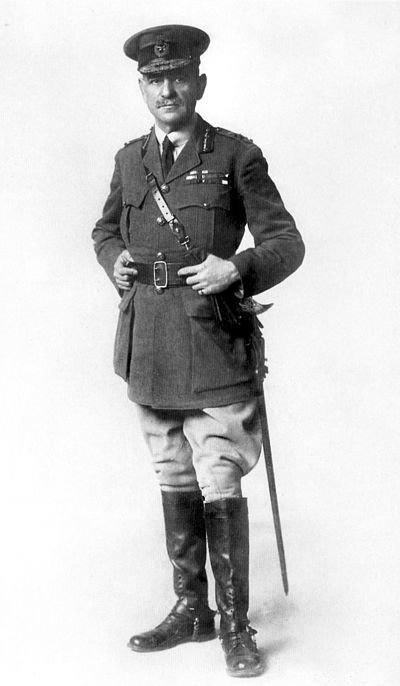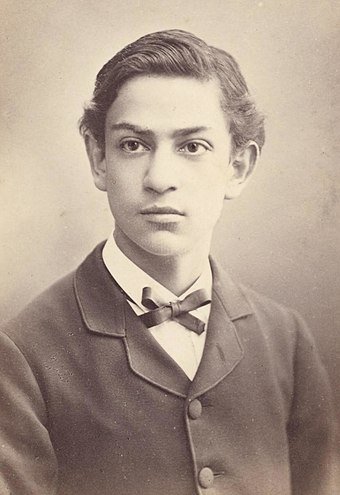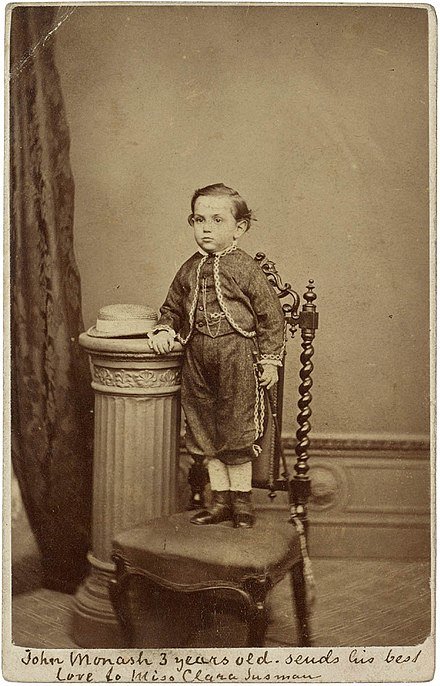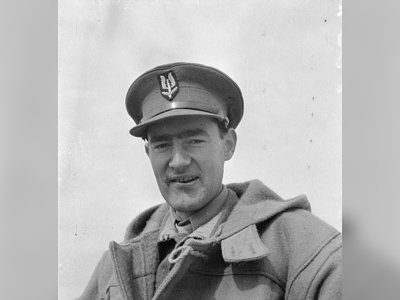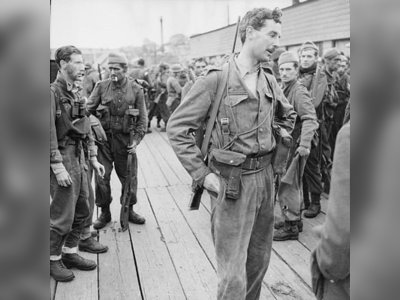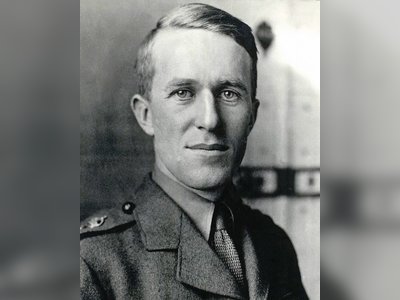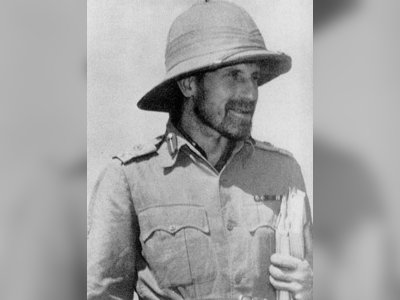British Heritage
Remember, Cherish, Learn.
beta
John Monash
Contribution of Sir John Monash to British Heritage.
Sir John Monash, an Australian military commander and civil engineer, made significant contributions to British heritage through his exceptional leadership and strategic brilliance during the First World War. He emerged as one of the best Allied generals of the conflict and remains the most celebrated commander in Australian history. Monash's profound impact on military thinking, his innovative approach to warfare, and his dedication to the welfare of his troops earned him great respect among both his superiors and his men.
Born on 27th June 1865 in West Melbourne, Victoria, to Jewish parents of German descent, Monash excelled academically and professionally. He graduated from the University of Melbourne with degrees in Engineering, Arts, and Law. As a civil engineer, Monash played a crucial role in introducing reinforced concrete to Australian engineering practice, leaving a lasting legacy in the country's infrastructure.
Monash joined the military as part of the university company of the militia in 1884 and rose through the ranks. During the First World War, he took command of the 4th Infantry Brigade in Egypt, which participated in the Gallipoli campaign against the Turks. Despite facing numerous challenges, Monash showcased his exceptional decision-making and organizational skills during this campaign, earning him a promotion to brigadier general in July 1915.
In June 1916, Monash and his command were transferred to the Western Front, where he eventually became the commander of the Australian 3rd Division. He trained the division with meticulous attention to detail and achieved significant victories in battles such as Messines, Broodseinde, and the First Battle of Passchendaele. His performance and reputation impressed the British High Command, and he was promoted to major general in July 1916. Later, Monash became the commander of the Australian Corps, the largest individual corps on the Western Front.
Under Monash's command, the Australian Corps achieved a series of victories against the Germans, including the capture of Villers-Bretonneux, Mont St Quentin, Peronne, and Hargicourt. His approach to warfare emphasized the coordinated use of infantry, aircraft, artillery, and tanks, highlighting the significance of thorough planning and integration of all available resources. Monash's innovative tactics played a vital role in the successful Allied offensive across the Western Front, which led to the ultimate breach of the Hindenburg Line and the eventual end of the war. His reputation as a brilliant military strategist and leader earned him accolades, both from the Australian Government and foreign nations.
Monash's legacy extends beyond his military achievements. After the war, he played prominent roles in civilian positions, including heading the State Electricity Commission of Victoria and serving as the vice-chancellor of the University of Melbourne. He was also involved in founding the Rotary Club of Melbourne and the Zionist Federation of Australia and New Zealand. Monash's face adorns Australia's highest denomination currency note, signifying his enduring influence on Australian society.
In recent years, there has been a movement to posthumously promote Monash to the rank of field marshal. Advocates argue that he was denied such recognition during his lifetime due to discrimination, including his German-Jewish ancestry and his status as a reservist. Despite debates surrounding this issue, Monash's significant contributions to British heritage and his outstanding leadership during the First World War are undeniable, securing his place as one of the greatest military commanders in history.
Born on 27th June 1865 in West Melbourne, Victoria, to Jewish parents of German descent, Monash excelled academically and professionally. He graduated from the University of Melbourne with degrees in Engineering, Arts, and Law. As a civil engineer, Monash played a crucial role in introducing reinforced concrete to Australian engineering practice, leaving a lasting legacy in the country's infrastructure.
Military Career and Gallipoli Campaign
Monash joined the military as part of the university company of the militia in 1884 and rose through the ranks. During the First World War, he took command of the 4th Infantry Brigade in Egypt, which participated in the Gallipoli campaign against the Turks. Despite facing numerous challenges, Monash showcased his exceptional decision-making and organizational skills during this campaign, earning him a promotion to brigadier general in July 1915.
Western Front and Commander of the Australian Corps
In June 1916, Monash and his command were transferred to the Western Front, where he eventually became the commander of the Australian 3rd Division. He trained the division with meticulous attention to detail and achieved significant victories in battles such as Messines, Broodseinde, and the First Battle of Passchendaele. His performance and reputation impressed the British High Command, and he was promoted to major general in July 1916. Later, Monash became the commander of the Australian Corps, the largest individual corps on the Western Front.
Victories and Impact
Under Monash's command, the Australian Corps achieved a series of victories against the Germans, including the capture of Villers-Bretonneux, Mont St Quentin, Peronne, and Hargicourt. His approach to warfare emphasized the coordinated use of infantry, aircraft, artillery, and tanks, highlighting the significance of thorough planning and integration of all available resources. Monash's innovative tactics played a vital role in the successful Allied offensive across the Western Front, which led to the ultimate breach of the Hindenburg Line and the eventual end of the war. His reputation as a brilliant military strategist and leader earned him accolades, both from the Australian Government and foreign nations.
Legacy and Recognition
Monash's legacy extends beyond his military achievements. After the war, he played prominent roles in civilian positions, including heading the State Electricity Commission of Victoria and serving as the vice-chancellor of the University of Melbourne. He was also involved in founding the Rotary Club of Melbourne and the Zionist Federation of Australia and New Zealand. Monash's face adorns Australia's highest denomination currency note, signifying his enduring influence on Australian society.
Posthumous Recognition
In recent years, there has been a movement to posthumously promote Monash to the rank of field marshal. Advocates argue that he was denied such recognition during his lifetime due to discrimination, including his German-Jewish ancestry and his status as a reservist. Despite debates surrounding this issue, Monash's significant contributions to British heritage and his outstanding leadership during the First World War are undeniable, securing his place as one of the greatest military commanders in history.
- John Monashen.wikipedia.org
